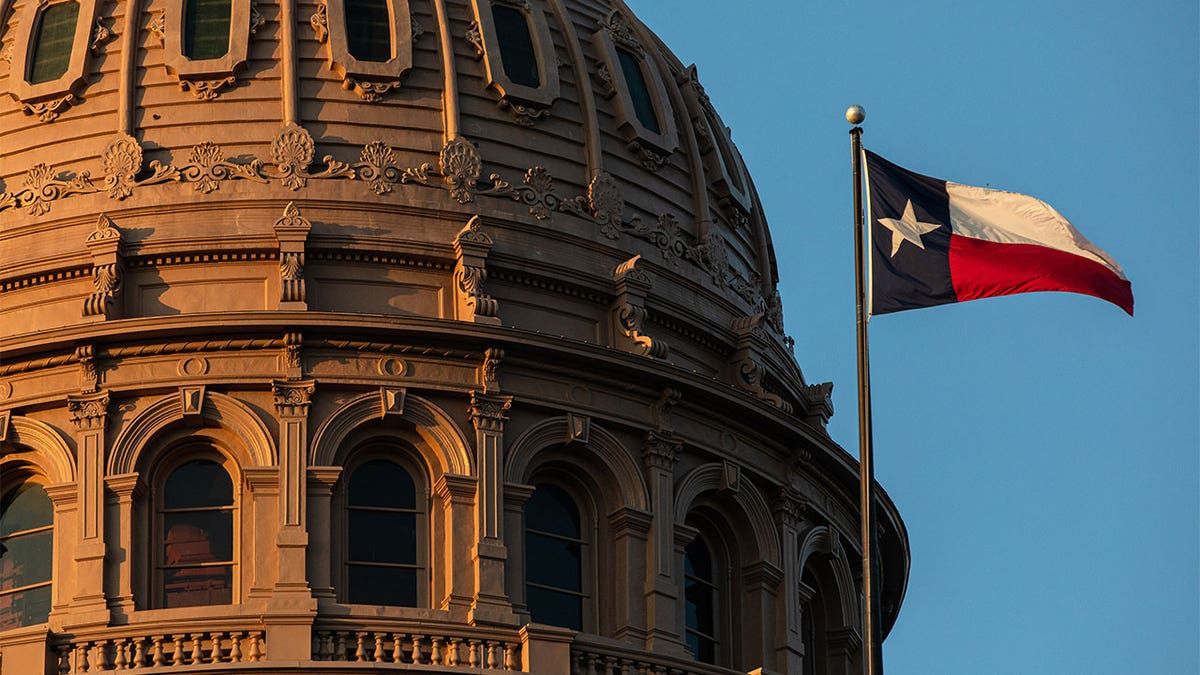Join Fox News for access to this content
Plus special access to select articles and other premium content with your account - free of charge.
By entering your email and pushing continue, you are agreeing to Fox News' Terms of Use and Privacy Policy, which includes our Notice of Financial Incentive.
Please enter a valid email address.
Free speech advocates in Texas are warning about new bills being considered in the state that they say would weaken protections for ordinary citizens and journalists against intimidating lawsuits.
Lawsuits launched by powerful and deep-pocketed interests for the purpose of silencing and effectively harassing people exercising free speech rights are known as SLAPPs (Strategic Lawsuits Against Public Participation). The Reporters Committee for Freedom of the Press describes SLAPPs as being filed "for intimidating and silencing criticism through expensive, baseless legal proceedings."
The 2011 Texas Citizens Participation Act was passed as a way to empower defendants against such suits, advocates say, but now they say it's under attack in a threat to free speech across the political spectrum.
The current law affords defendants who feel they are the victims of unfair SLAPP lawsuits to move to quickly dismiss them and be awarded attorneys' fees if successful. HB 2988, which is set to proceed to a hearing on Wednesday in the state's House Judiciary & Civil Jurisprudence committee, is being criticized as a way to gut the TCPA.

Texas state Capitol in Austin, Texas. (Tamir Kalifa/Getty Images)
"Any time someone exposes an uncomfortable truth or an opposing view, they can easily be a SLAPP victim, and these laws are the only things that give them power against the bullies in the courtroom," First Amendment attorney Laura Prather told Fox News Digital.
"It's a form of judicial harassment, where you're really just trying to lock somebody up in a lengthy legal battle because they expressed an opinion that you didn't like or they exposed wrongdoing that you didn't like," she added.
In journalism, anti-SLAPP laws are meant to protect journalists from being besieged by defamation or other lawsuits as a means of intimidation, given the expense and difficulty involved in being wrapped up in lengthy court proceedings.
Under the TCPA, a speaker who had been sued in a SLAPP case that was dismissed would receive attorney's fees and costs, and the law also allowed the court to award sanctions against the plaintiff. However, HB 2988 would make the awarding of attorney's fees discretionary instead of mandatory, and potentially put a defendant on the hook for the plaintiff's legal fees at a judge's discretion.
The TCPA also includes an automatic stay of discovery, meaning defendants using its protections can avoid the arduous and intrusive process of exchanging information, documents and other materials before a trial. SB 336, which has an identical companion bill in the House, HB 2459, would repeal that provision that stays discovery and trial in a SLAPP case "until such time that an appeals court has ruled, if asked to do so, on an anti-SLAPP motion," according to an article in the Institute for Free Speech.
"If this bill passes, anyone targeted by a SLAPP lawsuit in Texas will have to battle in trial court and appeal court simultaneously," conservative commentator Ben Ferguson wrote about SB 336 in Human Events. "That’s not just a procedural change—it’s a death sentence for small media outlets, grassroots conservatives, and people like me who rely on that protection to survive the legal attacks hurled our way."
"The TCPA protects Texans across the ideological spectrum, from grassroots activists to government watchdogs to on-line reviewers," James Bopp, general counsel of the National Right to Life Committee, wrote last week. "Weakening the TCPA would embolden litigious corporations, political operatives, and deep-pocketed individuals to use the courts as a cudgel against their opponents. The impact would be devastating not just for those sued, but for the fundamental principles of free speech and open debate in Texas."
Supporters of the proposals say the anti-SLAPP law can be used mischievously to gum up court proceedings and delay litigation on matters unrelated to free speech. The Texas Tribune reported on one example involving a contractor who filed an anti-SLAPP motion to halt a case brought by a developer over an apartment construction project. The contractor froze the case a month before trial even though the motion was eventually ruled to be frivolous, and the developer's lawyer said the delay cost his client millions.
"This is a perfect example where a shield has become an abusive sword," Republican State Rep. Jeff Leach said during a hearing on similar legislation to reform the TCPA in 2023.
Fox News Digital reached out to Republican Texas State Sen. Bryan Hughes and Republican State Rep. Mano DeAyala, the respective sponsors of SB 336 and HB 2988, for comment.
DeAyala has accused critics of misrepresenting his bill's goals, responding to one that he's specifically trying to protect the TCPA.
"The TCPA as intended is alive and well and especially the scenario in your post," he wrote last week to someone saying his bill would kill the TCPA. "The bill does not change that. It simply provides some protection to the little guy from the bullies who misuse and abuse the TCPA."
In another post in February, he said the TCPA had good intentions, but he was trying to keep bad-faith actors from manipulating it.
CLICK HERE TO READ MORE ABOUT MEDIA AND CULTURE

Cyclists pass beneath the downtown skyline on the hike and bike trail on Lady Bird Lake in Austin, Texas. (Reuters/Julia Robinson)
Advocates for the TCPA say the protections therein cut across the political spectrum; a liberal journalist or activist organization would benefit just as much as a conservative one from being able to speak out with less fear of reprisal. They also reject the notion that the reform bills being considered would clean up court overcrowding, saying it could have the reverse effect.
CLICK HERE TO GET THE FOX NEWS APP
"They may not sue you to begin with," Prather told Fox News Digital, giving examples like restaurants suing patrons for bad online reviews. "It serves as a deterrent against those bullies that want to use the courtroom to silence you. It's a huge deterrent, and that's really important."

 3 hours ago
2
3 hours ago
2













































